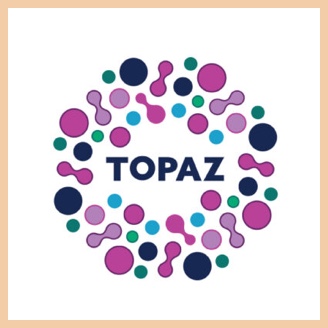We are unflinching in the face of serious disease. We embrace innovation fully in our efforts to develop and investigate novel medicines and science.

Spinal Muscular Atrophy
TOPAZ
The TOPAZ Phase 2 proof of concept trial evaluated the safety and efficacy of apitegromab (SRK-015) in patients with Type 2 and Type 3 SMA.
The trial enrolled 58 patients between the ages of 2 and 21 in the U.S. and Europe across three distinct cohorts. All patients received apitegromab once every four weeks either as a monotherapy or in conjunction with an approved SMN upregulator treatment over a 12-month treatment period. The primary efficacy endpoints measure motor function through clinically meaningful outcome measures validated in SMA, such as the Hammersmith Functional Motor Scale Expanded (HFMSE) in non-ambulatory SMA and the Revised Hammersmith Scale (RHS) in ambulatory SMA.
A pre-planned interim analysis was conducted following a six-month treatment period, and positive proof-of-concept data were announced in October 2020. Top-line results for the full 12-month treatment period were announced in April 2021.
SAPPHIRE
SAPPHIRE was a randomized, double-blind, placebo-controlled Phase 3 clinical trial that evaluated the safety and efficacy of apitegromab in nonambulatory patients with Types 2 and 3 SMA who are receiving current standard of care (either nusinersen or risdiplam). SAPPHIRE enrolled 156 patients aged 2-12 years old in the main efficacy population. These patients were randomized 1:1:1 to receive for 12 months either apitegromab 10 mg/kg, apitegromab 20 mg/kg, or placebo by intravenous (IV) infusion every 4 weeks. An exploratory population that enrolled 32 patients aged 13-21 years old was also evaluated. These patients were randomized 2:1 to receive either apitegromab 20 mg/kg or placebo.
Immuno-Oncology
DRAGON
The DRAGON trial is investigating SRK-181, a selective inhibitor of TGFβ1 activation, in patients with locally advanced or metastatic solid tumors that have shown primary resistance to checkpoint inhibitor therapies. Part A was designed to assess safety and tolerability of SRK-181. With some results of Part A available, Part B dose expansion portion of the trial is now underway to evaluate SRK-181 in combination with an approved anti-PD-(L)1 therapy across multiple solid tumor cohorts to test proof of consent.
Expanded Access Policy
Patients seeking more information on potential clinical trials should contact their physician.